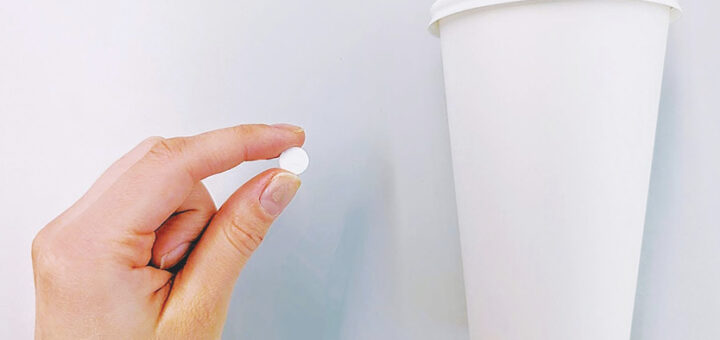Pills vs. the world’s favourite beverage

Arroy (AJ) Jacob, Web Editor
How often do people remember that caffeine is a drug? In the context of coffee, many of us forget “drugs’” negative connotations due to its sensationalised normalisation.
According to statistics on Made in CA, coffee, the world’s favourite beverage, keeps our country running as 71 per cent of Canadians drink coffee regularly (even more than tap water). Clearly, the taste of coffee and the added benefits of caffeine consumption make it more popular than ever.
But those looking for alternate options to boost their energy that do not involve coffee, energy drinks, etc., may consider caffeine pills.
When I tell my friends that I take caffeine pills, I’m met with glaring eyes, furrowed eyebrows, and agape mouths telling me that I’m crazy, or that it’s not healthy for me, or that I’m going to die young.
Suddenly, the word “drug” immediately comes back into the context of caffeine whenever I mention the word “pill.” But not when I say “coffee?”
To this, I will rebut two of the significant arguments I’ve received and respond with accurate research to demystify the cloudiness around caffeine pill usage. Hopefully, all the coffee lovers’ mugs don’t all shatter at once.
“It’s not the same!”
Hold on. Most cups of coffee contain around 100-200 mg of coffee. The average adult should take a maximum of 400 mg, equating to approximately three to five cups of the world’s favourite beverage.
And most caffeine pills are sold at 200 mg of caffeine per pill, equating to two pills a day.
In the context of achieving attentiveness and energy with coffee, these two forms of consumption are equivalent. If anything, caffeine pills are much more effective at delivering the drug through your circulatory system than coffee, as the pill form is pure and small and can easily dissolve faster in your digestive system, as any pill could.
Now, if you’re looking for the actual taste of coffee, I would say that it is irrelevant in the debate of its effectiveness to caffeinate. We all know that caffeine pills do not have a taste; what matters is that they do their job.
If you desire the obscure scent of roasted beans in the morning or want to feel a smooth bitterness run through your throat (for whatever reason), try Mount Royal University’s tap water instead. Or just get decaf.
“It’s worse for your body!”
Mayo Clinic disagrees. Side effects of excessive consumption of caffeine (such as headaches, insomnia, irritability, and even muscle tremors) can become prevalent through an overconsumption of either coffee or pills. The side effects for both stay the same.
In fact, there are more benefits to your body when taking caffeine pills compared to coffee.
One of these benefits includes eliminating unnecessary additives to your coffee by just taking the pill form instead. “About two-thirds of coffee drinkers and one-third of tea drinkers add sugar in their coffee,” says Advanced Dentistry. And Health.com validates this by saying: “taking a pill avoids a higher sugar intake for coffee or other caffeinated beverages altogether. Because coffee can be so bitter, people often add creamer and sweeteners. This can increase your added sugar intake.”
A second added benefit to the pure pill form, compared to coffee, is the complete absence of poor digestion. If you are familiar with the uncomfortable murmurs and excretions that occur when drinking a hot cup o’ Joe, a large portion of that fact is due to the beverage’s acidity level. Healthline says, “Coffee contains many acids, such as chlorogenic acid and N-alkanoyl-5-hydroxytryptamide, which have been shown to increase stomach acid production. Stomach acid helps break down food so it can move through your gut.” They say that coffee acids paired with “common additives like milk, cream, sugar, or sweeteners (additives) may upset your stomach as well.”
Caffeine pills ignore both of these concerns, and recall makes it much easier to become attentive and energised in a shorter amount of time (with the right amount of consumption).
But I guess at the end of the day…
Everyone’s preferences for using caffeine are going to be different. Whether they pop the pill or swallow a hot serving, everyone is trying to achieve the same goal. They want to re-energize their life for a brief moment before starting their workday, finishing that last-minute essay, or even boosting their self-confidence.
What matters is that all caffeine users know the medically-revised advice and information provided for either form of caffeine, and that no one puts down the other solely based on their lack of knowledge of how the other method works.
At the end of the day, we’re all taking the same drug.





